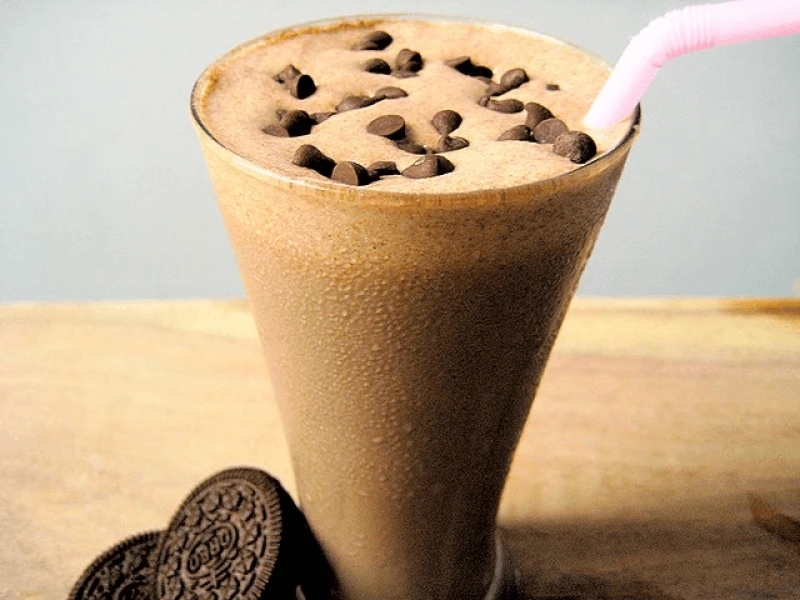Why do we love to eat rich, fatty foods?
Why do we love to eat rich, fatty foods?


Rich, high-fat foods such as ice cream are loved not only for their taste, but also for the physical sensations they produce in the mouth — their ‘mouthfeel’. Now scientists have identified a brain area that both responds to the smooth texture of fatty foods and uses that information to rate the morsel’s allure, guiding eating behaviour.
These findings, published on 16 October in The Journal of Neuroscience, “add a new dimension” of the eating experience to scientists’ understanding of what motivates people to choose certain foods, says [neuroscientist] Ivan de Araujo.
After tasting each milkshake, participants placed bids on how much they would spend to drink a full glass of it after the experiment.
Accompanying brain scans showed that activity patterns in an area called the orbitofrontal cortex (OFC), which is involved in reward processing, reflected the shakes’ texture. The scans also identified OFC activity patterns that reflected participants’ bids, suggesting that this brain region links mouthfeel to the value placed on that food.
…
To find out whether this finding extends to food intake, the researchers invited the participants to return to the laboratory for a free lunch of several curry dishes with varying fat contents. Unbeknown to the participants, the researchers measured how much of each curry the participants ate. They found that those whose OFCs were most sensitive to fatty texture were more likely to eat more of the high-fat curry compared with those who weren’t as sensitive to fatty texture.
This is an excerpt. Read the original post here

 | Videos | More... |

Video: Nuclear energy will destroy us? Global warming is an existential threat? Chemicals are massacring bees? Donate to the Green Industrial Complex!
 | Bees & Pollinators | More... |

GLP podcast: Science journalism is a mess. Here’s how to fix it

Mosquito massacre: Can we safely tackle malaria with a CRISPR gene drive?

Are we facing an ‘Insect Apocalypse’ caused by ‘intensive, industrial’ farming and agricultural chemicals? The media say yes; Science says ‘no’
 | Infographics | More... |

Infographic: Global regulatory and health research agencies on whether glyphosate causes cancer
 | GMO FAQs | More... |

Why is there controversy over GMO foods but not GMO drugs?

How are GMOs labeled around the world?

How does genetic engineering differ from conventional breeding?
 | GLP Profiles | More... |

Alex Jones: Right-wing conspiracy theorist stokes fear of GMOs, pesticides to sell ‘health supplements’




 Viewpoint — Fact checking MAHA mythmakers: How wellness influencers and RFK, Jr. undermine American science and health
Viewpoint — Fact checking MAHA mythmakers: How wellness influencers and RFK, Jr. undermine American science and health Viewpoint: Video — Big Solar is gobbling up productive agricultural land and hurting farmers yet providing little energy or sustainabilty gains
Viewpoint: Video — Big Solar is gobbling up productive agricultural land and hurting farmers yet providing little energy or sustainabilty gains Fighting deforestation with CO2: Biotechnology breakthrough creates sustainable palm oil alternative for cosmetics
Fighting deforestation with CO2: Biotechnology breakthrough creates sustainable palm oil alternative for cosmetics Trust issues: What happens when therapists use ChatGPT?
Trust issues: What happens when therapists use ChatGPT? 30-year-old tomato line shows genetic resistance to devastating virus
30-year-old tomato line shows genetic resistance to devastating virus California, Washington, Oregon forge immunization alliance to safeguard vaccine access against federal undermining
California, Washington, Oregon forge immunization alliance to safeguard vaccine access against federal undermining The free-range chicken dilemma: Better for birds, but with substantial costs
The free-range chicken dilemma: Better for birds, but with substantial costs ‘You have to treat the brain first’: Rethinking chronic pain with Sanjay Gupta
‘You have to treat the brain first’: Rethinking chronic pain with Sanjay Gupta
